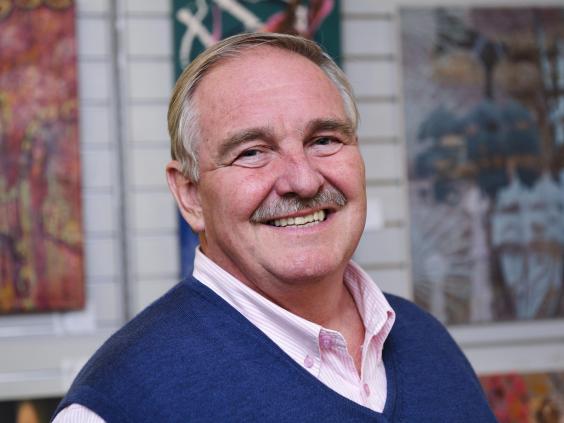'Hangover-free alcohol’ could replace all regular alcohol by 2050, says David Nutt
The new drink, known as 'alcosynth', is designed to mimic the positive effects of alcohol but doesn’t cause a dry mouth, nausea and a throbbing head
A new type of synthetic alcohol has been discovered which could allow people to enjoy the sociable effects of a few pints, but skip the hangover that usually follows.
The new drink, known as 'alcosynth', is designed to mimic the positive effects of alcohol but doesn’t cause a dry mouth, nausea and a throbbing head, according to its creator Professor David Nutt.
The Imperial College Professor and former government drugs advisor toldThe Independent he has patented around 90 different alcosynth compounds.
Two of them are now being rigorously tested for widespread use, he said – and by 2050, he hopes alcosynth could completely replace normal alcohol.
“It will be there alongside the scotch and the gin, they'll dispense the alcosynth into your cocktail and then you'll have the pleasure without damaging your liver and your heart,” he said.
“They go very nicely into mojitos. They even go into something as clear as a Tom Collins. One is pretty tasteless, the other has a bitter taste."
By researching substances that work on the brain in a similar way to alcohol, Professor Nutt and his team have been able to design a drug which they say is non-toxic and replicates the positive effects of alcohol.
“We know a lot about the brain science of alcohol; it's become very well understood in the last 30 years,” said Professor Nutt.
“So we know where the good effects of alcohol are mediated in the brain, and can mimic them. And by not touching the bad areas, we don't have the bad effects.”
Advocates of alcosynth believe it could revolutionise public health by relieving the burden of alcohol on the health service.
According to Alcohol Concern, drinking is the third biggest risk factor for disease and death in the UK, after smoking and obesity.
"People want healthier drinks," said Professor Nutt. “The drinks industry knows that by 2050 alcohol will be gone."
"They know that and have been planning for this for at least 10 years. But they don't want to rush into it, because they're making so much money from conventional alcohol.”
Early experiments into alcosynth, such as those reported on by BBC’s Horizon in 2011, used a derivative of benzodiazepine – the same class of drugs as Valium.
Mr Nutt said his new drinks did not contain benzodiazepine, and their formulas would remain a closely guarded, patented secret.
However, the huge cost of funding research into the drug and regulatory concerns mean it could be a long time before people can order an alcosynth cocktail at their local pub.
Professor Nutt, who was sacked from his position as the government drugs tsar in 2009 after he claimed taking ecstasy was less dangerous than riding a horse, said he was unsure if the use of synthetic alcohol would be restricted by the new Psychoactive Substances Act, which came into force in May.
“It’s an interesting idea, but too much in its infancy at the moment for us to comment on,” a Department of Health spokesperson told The Independent.
“I don’t think we’d give money to it until it was a little further along,” said the spokesperson. "If [Professor Nutt] were to apply for funding, it would go through the process of everything else and would be judged on its merits.”
“It would be great for producing better workforce efficiency if no one was hungover,” they added.
According to Professor Nutt, the effects of alcosynth last around a couple of hours – the same as traditional alcohol.
He said he and his team have also managed to limit the effects of drinking a lot of alcosynth, so in theory it would be impossible to ever feel too 'drunk'.
“We think the effects round out at about four or five 'drinks', then the effect would max out,” he said.
“We haven't tested it to destruction yet, but it's safer than drinking too much alcohol. With clever pharmacology, you can limit and put a ceiling on the effects, so you can't ever get as ill or kill yourself, unlike with drinking a lot of vodka.”
Researcher Guy Bentley worked with Professor Nutt on a new report by the liberal think tank the Adam Smith Institute into alcosynth regulation.
Mr Bentley told The Independent he hoped to persuade the government to accept the drug as a way of reducing the harm caused by alcohol.
“[The report] is trying to spark what happened with e-cigarettes and tobacco, but with alcohol," he said. "Professor Nutt has been experimenting on this for a long time, but I thought to myself - ‘where is it?’ I wanted my hangover-free booze.”
However, not everyone was as keen on the new discovery.
Neil Williams, from the British Beer and Pub Association, said alcosynth was not necessary, as “there are other ways of avoiding a hangover”.
“There are plenty of low-strength drinks, particularly beers,” he told The Independent. “We should all drink in moderation so we shouldn’t need to have a hangover anyway.”
“I’d want to know more about it before I tried it myself,” he said.



No comments:
Post a Comment